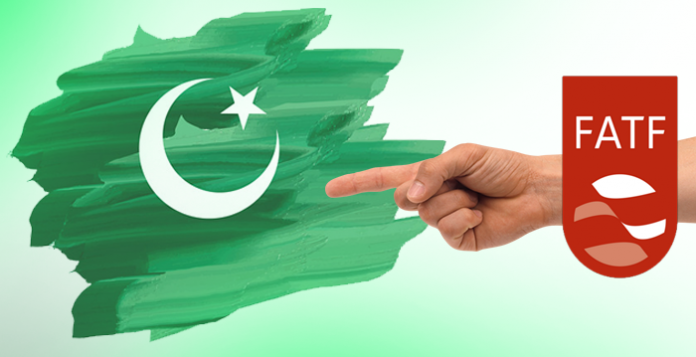ISLAMABAD: Although Pakistan, during the past six months, has taken multiple steps to meet the conditions of the Financial Action Task Force (FATF), the recent report of European Commission (EC) regarding anti-money laundering and counter-terror financing is going to add to Pakistan’s difficulties in its hope to be de-listed from the grey-list.
The European Commission (EC) last month issued a new list of 23 countries, including Pakistan, having weak anti-money laundering and counter-terror financing regimes and asked them to remedy their deficiencies swiftly.
Saudi Arabia and some other countries have strongly protested against their inclusion in the said list; however, Pakistan is yet to take up the issue with European countries despite the grave implication of the development. The 23 jurisdictions listed are: Afghanistan, American Samoa, the Bahamas, Botswana, North Korea, Ethiopia, Ghana, Guam, Iran, Iraq, Libya, Nigeria, Pakistan, Panama, Puerto Rico, Samoa, Saudi Arabia, Sri Lanka, Syria, Trinidad and Tobago, Tunisia, US Virgin Islands and Yemen.
According to sources, since Saudi Arabia and some other countries have questioned the findings of the EC, the European countries are likely to revisit the list. If Pakistan remains in the list, its case at FATF may become weak and it would be difficult for Islamabad to avoid falling in the negative list within the three-month deadline.
Since FATF conditions are also much-needed for Pakistan to avail next programme of International Monetary Fund (IMF), the inclusion in the sensitive list of EC has further increased challenges for Pakistan, sources claimed.
According to insiders, the government, keeping in view the measures needed to be taken for further tightening noose against the banned militant outfits, announce on Monday to take actions against the militant groups. Information Minister Fawad Chaudhry in statement said that the decision to act against militant groups operating on its soil was taken at a meeting of the National Security Committee before the suicide bombing, claimed by Jaish-e-Mohammad (JeM), in held Kashmir.
“We have to implement FATF conditionalities, and likewise, we have taken strict measures on money laundering to dry the source of funding for these groups,” Fawad said adding that his government was looking to close “loopholes” that allowed banned groups to operate.
A senior economist who wished to remain anonymous claimed that limited options have been left with Pakistan after the EC’s report to meet FATF conditionalities. The country needed strong diplomacy with important countries to avoid falling in the negative list by June 2019, the deadline given by FATF last month. The FATF is yet to be convinced by Pakistan as the international watchdog seems unsatisfied with the steps taken by Islamabad during the past six months, the economist told this scribe.
The Ministry of Finance spokesperson could not be reached for comments despite repeated attempts.
Last month, the EC said the aim of this list is to protect the EU financial system by better preventing money laundering and terrorist financing risks. “As a result of the listing, banks and other entities covered by EU anti-money laundering rules will be required to apply increased checks (due diligence) on financial operations involving customers and financial institutions from high-risk third countries to better identify any suspicious money flows,” said the commission in its statement.
The list is based on a new methodology, reflecting stricter criteria of the fifth anti-money laundering directive in force since July 2018 and has been established on an analysis of 54 priority jurisdictions, which was prepared by the Commission in consultation with member states. For each country, EC assessed the level of existing threat, the legal framework and controls put in place to prevent money laundering and terrorist financing risks and their effective implementation. It also took into account the work of the FATF, the international standard-setter in this field.




